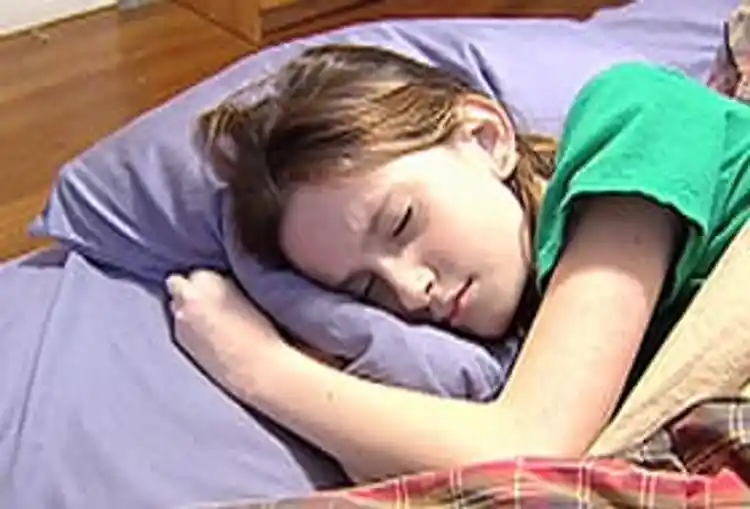Daylight Savings Time

Hide Video Transcript
Video Transcript
Narrator
It's time to re-set our clocks again. These days we take it for granted… : Krysta, WAKE UP. We are going to be late for school!
Narrator
So why then are so many of us so disoriented by the shift of a mere hour? Al Lewy, MD, PhD
Some people do fine, but some…it takes them almost a week to adjust to it Narrator
That's because light is a direct link to our internal body clock. It's known as our circadian rhythm, and when we mess with this natural process studies show it can affect memory, concentration and performance, as well as cause daytime sleepiness and fatigue.For those already struggling with sleeping issues, like Jesse here who's been treated for a sleep disorder, it can wreak havoc: Peggy
It messed his sleep cycle up. Jesse went back to being whinny tired, not sleeping well. Narrator
Well don't throw the alarm clock out the bedroom window just yet. There are ways to make your body clock adjust more quickly. One is to control your natural impulses for a couple of days after the time change: Al Lewy, MD, PhD
As much as you want to experience all that extra daylight in the evening, restrain yourself and stay indoors and don't get that late—that last hour of light because it's working against the direction of shifting your body clock. Narrator
You might also try: ;Waking up about a half-hour earlier a day or two before the time change ;Exposing yourself to a bright light, like the morning sun, as soon as possible after you wake up. ;Blacking out your bedroom windows will keep the light out of your sleeping area.;You can also, talk to your doctor about resetting your body clock with a small amount of the natural hormone, melatonin. That's the chemical your pineal gland makes to give you that sleepy feeling. Melatonin supplements are considered safe for most people, but you should avoid driving or use of heavy machinery after taking it. In general, "losing" an hour in the spring is more difficult to adjust to than "gaining" an hour in the fall. For both, consider the benefits of pre-bedtime rituals and proper sleep hygiene. Things like keeping your bedroom cozy, cool and dark can go a long way in keeping your body clock in sync with the one that wakes you up in the morning. For WebMD, I'm Damon Meharg. 